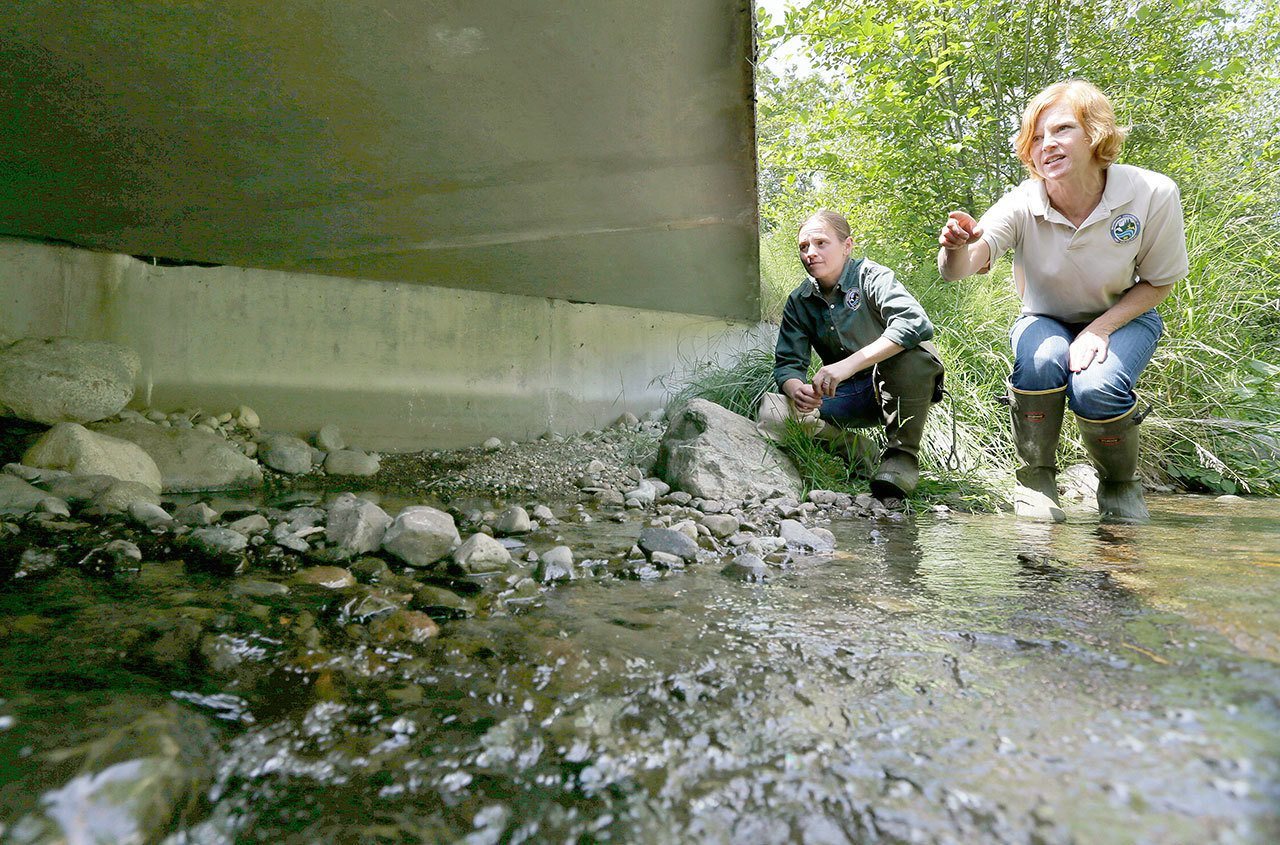By The Herald Editorial Board
We’ve received reminders recently that treaties are powerful things.
Just weeks after the Army Corps of Engineers cited tribal fishing rights to deny a permit for what would have been the nation’s largest coal-export terminal in Whatcom County, a federal appellate court upheld a lower court ruling on Monday, citing the same treaty-guaranteed fishing rights, that requires the state to replace hundreds of culverts that are blocking passage of salmon to spawning grounds.
The culverts, concrete or metal pipes that direct streams beneath roads and highways, often fill with debris or were placed too high above a stream bed to allow salmon to pass. The state Department of Transportation is responsible for more than 800 of the culverts, 137 of them in Snohomish County.
Stretching back more than 15 years, 21 tribes and the federal government filed a complaint in federal District Court seeking replacement of the culverts. The tribes won their case in 2007, and again in 2013, when the court gave the state 17 years to replace the culverts it controlled. On Monday, the 9th Circuit Court of Appeals rejected an appeal by the state, in which it claimed the earlier court order was too sweeping and too expensive.
Cost, as we’ve seen with health care, psychiatric care and public education, does not relieve the state and its taxpayers from their responsibilities, particularly when treaty rights are involved.
In signing those treaties the tribes gave up a great deal in the land on which they lived in order to protect their right to fish.
“The Indians did not understand the Treaties to promise that they would have access to their usual and accustomed fishing places, but with a qualification that would allow the government to diminish or destroy the fish runs,” wrote Judge William Fletcher for the three-judge panel. Isaac Stevens, the territorial governor who signed the treaties in the 1850s, would not have made “such a cynical and disingenuous promise,” he said.
Replacing the culverts beneath roads and highways is an effective way of enhancing salmon-bearing streams. It will be expensive, costing the state as much as $2.4 billion, although the state is revising its cost estimate and project list. Since the lower court’s 2013 decision, the state has replaced more than 20 fish-blocking culverts and is replacing 20 more this summer.
Yet with some 800 culverts to replace, the state will need to step up its schedule, especially in a time of decline for some salmon runs.
The culverts are just one example of the loss of habitat and environmental degradation that have occurred in the more than 160 years since the treaties were signed. We remain responsible for solutions that restore and protect habitat, keep our waters clean and sustain our resources.
Tribal representatives, including Tulalip Tribes Chairman Mel Sheldon Jr. and Lorraine Loomis, chairwoman of the Northwest Indian Fisheries Commission, praised the decision for upholding tribal treaty rights and for protecting the environment, as The Herald’s Chris Winters reported Tuesday.
But while the treaties secured the rights for the tribes, both said the benefits extend beyond the tribes to include everyone.
“This ruling makes clear that our treaty rights include the right to have salmon habitat protected so that there are fish to harvest,” Loomis said. “That means more salmon for everyone.”
In honoring a 19th century promise to the tribes, we can assure a liveable state into the 21st century and beyond for all.
Talk to us
> Give us your news tips.
> Send us a letter to the editor.
> More Herald contact information.

























